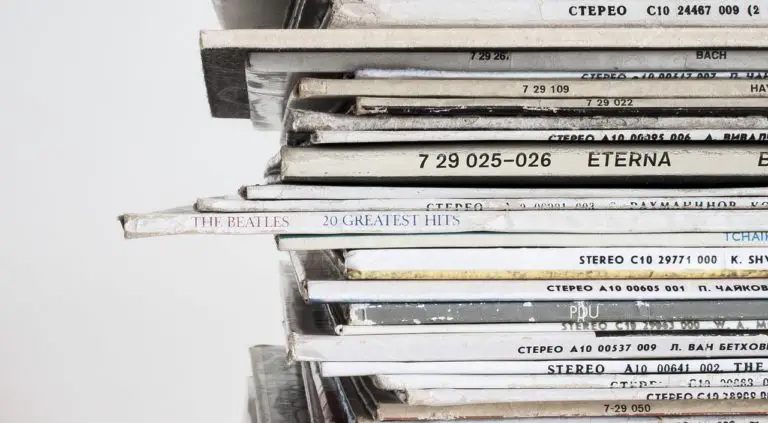Why Are Musicians Depressed?
Seven out of ten music makers have experienced symptoms of mental illness. It can be a combination of depression, anxiety, and stress. While I typically like to keep things light, it is essential to draw attention to this topic.
If you are like me, I listen to music from all over the emotional spectrum. I have music for when I’m happy, sad, or angry. But if I listen to music to complement my feelings, one can only wonder what musicians feel when creating that stuff.
So why are musicians often depressed? It is because toxic music culture puts money before everything. Many young musicians are paid almost nothing until they perform live shows. This focus on cash discourages innovation and destroys creativity.
Below, we will dig into other causes of depression in musicians and ways to help as consumers.
Little Chance Of Success
More than 90 percent of musicians are entirely undiscovered. It is a stark reminder that being a musician is one of the world’s most competitive fields.
Many musicians start with the dream of making it big. When the overwhelming majority of those don’t make it big, a substantial majority of those can’t even get off the ground. They starve themselves and put themselves on the road for an extended period to meet these goals.
It is pretty easy to see why these people can get overwhelmed easily. The amount of time and money they have to sacrifice to make it to where they want to be is pretty staggering.
Many of these people stuff the entirety of their crew in a beaten-down van. Sometimes, that van dies on the way to your tour, so you better hope that one of your bandmates has some experience as a mechanic.
Thankfully, some of those musicians have prioritized something beyond money. They overcome the negative pressures of a money-centric environment and focus on producing and touring out of self-fulfillment.
The negativity ride doesn’t stop for those who have “made it.” In some cases, those people have to deal with an even more giant demon, record companies.
Musicians And Mental Health – Stress On The Road
Imagine that you toughed through all of the issues listed above. Your record deal is pretty solid, and you’ve made it to the big leagues.
You’ve spent months working on your last album, and your dream is within sight. Once your album is released, you take one day off and find out that your good record deal says you will spend the next two years touring.
Better yet, you are told that this is standard for the industry. Over the next five years, you will probably struggle to think of any situation where you have the creative energy to produce more work, especially two albums worth.
At this point, it is only natural for artists to snap a few years into this schedule. Many of them aren’t ready for the psychological stress that comes with producing. This brings up a much larger social issue of work/life balance.
With a lack of work/life balance, musicians can’t take time to themselves. Their stress relief has to be quick and dirty, with no real resolution to whatever problems they are going through. Many musicians are encouraged to push down these feelings until they get time to deal with them.
News flash.
Mental health waits for nobody. Any person (musician or otherwise) who tries to press these down until they can deal with it are more likely to “deal with it” by chucking a microphone through a window.
What Are A Musician’s Rights?
The American Federation Of Musicians (AFM) is a musician’s union that state’s the following:
“Musicians’ ability to make a living is threatened as never before. Corporate profits continue growing while technological advances transform our work and how we are compensated… Musicians deserve good wages, decent working conditions, healthcare, and secure retirement.”
Despite streaming services making things complicated, the resources available to musicians today have the potential to be much stronger than they were.
If you know a musician or someone who wants to be a musician, have them look at the AFM first. Your most substantial resource is to be a part of a community of fellow musicians who have been there.
Drug And Alcohol Abuse – The “Rock And Roll Lifestyle”
The music field is full of famous people throwing fat stacks of cash around while taking drugs. The lifestyle of a famous musician is consumed with drug and alcohol abuse. Even today, young musicians become part of this life due to heavy peer pressure by those already a part of it.
Some drug abuse is likely due to the stress of being part of the road system. If you have a family waiting back home, it is easy to be consumed by not being with them. An unfortunate short-term solution to their problems is to stop feeling.
Steven Tyler is one famous example of someone who has overcome alcohol. Take particular note of him mentioning the importance of self-care.
A study related to the topic gave five different reasons that musicians would get into drug abuse. The five aspects include the following:
- Performance anxiety
- A hectic, pressured life
- Cultural, social, and workplace pressures
- Identity issues
- The pressure to be creative
Stress is one of the biggest reasons for drug abuse. Why would you face your problems when you could get drunk and ignore them? As someone who has been there before, it’s not a pretty sight.
Identity issues, born from society’s expectation of what a musician should be, are one of the scariest aspects to explore. Many artists used alcohol and drugs as something that identified them as unique. Below are a few examples:
| Artist | History With Drugs |
| Syd Barret of Pink Floyd | Notably used LSD until he was removed from the band in 1968. |
| Amy Winehouse | She, unfortunately, passed due to alcohol addiction in 2011. |
| David Bowie | He had a cocaine addiction, which was said to contribute to his Station to Station album. |
| Flava Flav | Flava Flav is known for a history of DUIs that resulted in a license suspension. |
| Neil Young | Wrote a song called “The Needle and the Damage Done,” referencing a heroin addiction history. |
Bad Record Deals And How They Affect A Musician’s Mental Health
It is pretty easy for a musician early to the game to get taken advantage of. These musicians feel the pressure to get into situations where there is only a “limited amount of time” before losing an opportunity.
One of the most famous examples of this happenings was from the song “Milkshake” by Kelis. “Milkshake” was one of those songs that hit instant popularity. Despite being a decade old, you can probably recall this song ringing through your head.
Kelis was under the assumption that profits were splitting evenly based on an interview conducted earlier this year. Because she was making money from touring, she didn’t realize she made no money from her first two albums’ sales. By the time that realization occurred, it was already too late.
The initial feeling of being around someone who seemed excited about your work goes away at that point. Instead, that feeling is replaced by one of betrayal and possibly defeat.
Thankfully, many talented musicians overcome what comes of their first experience with terrible record companies. But the few affected by this have no guidance and no defense, which is how many record companies prefer it.
Below are a few more famous examples of artists being taken advantage of by record labels. Some of these are alleged accusations.
| Artist | Bad Record Label Experience |
| Soulja Boy | He signed a contract at age 16, where Phillip Ransom gained five percent of Soulja Boy‘s income forever. |
| Little Richard | The rights to “Tutti Frutti” were purchased for $50, leaving Little Richard with a half a cent royalty rate per record. |
| Ma$e | P. Diddy withheld Mase from collaborating with other artists for 16 years. |
| Toni Braxton | Despite 20 million albums sold, Toni filed bankruptcy after a bad contract she signed with LaFace Records. |
| Unlocking The Truth | A child metal band that owes Sony $60 thousand after failing to sell 250 thousand records. |
Given what these people have had to go through, it is easy to see why they may feel depressed and defeated.
Musicians Think Differently
David Draiman of Disturbed has this to say on how artists think:
“To be someone that is an artist. You have to be a little eccentric, and it isn’t every person that can create in that way… sometimes those individuals can be incredibly fragile…”
There is some evidence to indicate that mood disorders follow creativity. However, having a mood disorder does not necessarily mean that one is more creative.
If you hear a musician talk about how their brain is a gift and a curse, this is why. Musicians have a higher chance of feeling emotions fully. They go down the rabbit hole of emotion and write music that explores that deeply.
Thus, there is music in the world that can connect with the listener to a great degree. For those of us who were scene kids from the 90s, we fully understand how a primal scream in the right spot can turn some songs into a masterpiece.
For further reference to that, several metal legends are talking about their mental health experience while on tour.
What Can I Do To Help A Musician Through Their Mental Health Issues?
There are a series of fantastic initiatives out there, many of those produced by musicians. Always remember that mental health emergencies are emergencies. If you have a friend in trouble, do not hesitate to call 911.
Below are some long-term resources that any musician can consider.
Music Industry Therapists & Coaches (MITC)
MITC is a group of therapists and counselors that have experience working for record labels, promoters, and artists. They cover a wide berth of the music industry that includes working in hospitals and helping musicians out.
CHECK YOUR HEAD Podcast
CHECK YOUR HEAD: Mental Help for Musicians Podcast is where notable musicians and experts share mental health solutions for wellness. Producer and host Mari Fong has interviewed a variety of notable musicians such as Linda Ronstadt, Fred Armisen and Jesse Leach of Killswitch Engage, along with world-renowned mental health experts and specialists from around the globe.
LightHopeLife Tour Support
Due to COVID-19, LightHopeLife has shifted its focus to those struggling at home. But Tour Support, which is their division which focuses on those going on tour, is likely to return once touring for musicians return.
LightHopeLife’s focus through their Tour Support program is to help people process difficult emotions and stress from being on tour.
BackLine.care
BackLine connects musicians and their families with mental health resources. They support virtual mental health and wellness, which includes support groups, meditation, and yoga. They also have licensed therapists trained to handle musician’s issues.
MusiCares
MusiCares is a brand under the Grammy’s which focuses on confidential support for artists in need. Their support includes financial assistance, addiction recovery, and preventative healthcare services.
Conclusion
Musicians are depressed because of a combination of insanely high pressures, a world that doesn’t understand them, and a toxic culture. One of these would be enough to drive anyone over the edge. All three of them result in an intense combination that would give the most secure person insanity.
Through a greater understanding and more support for our musicians in the field, we can help ensure that they receive the mental health treatment they need. By continuing to place pressure upon the most toxic aspects of music culture, we have the power to change the world around us.









